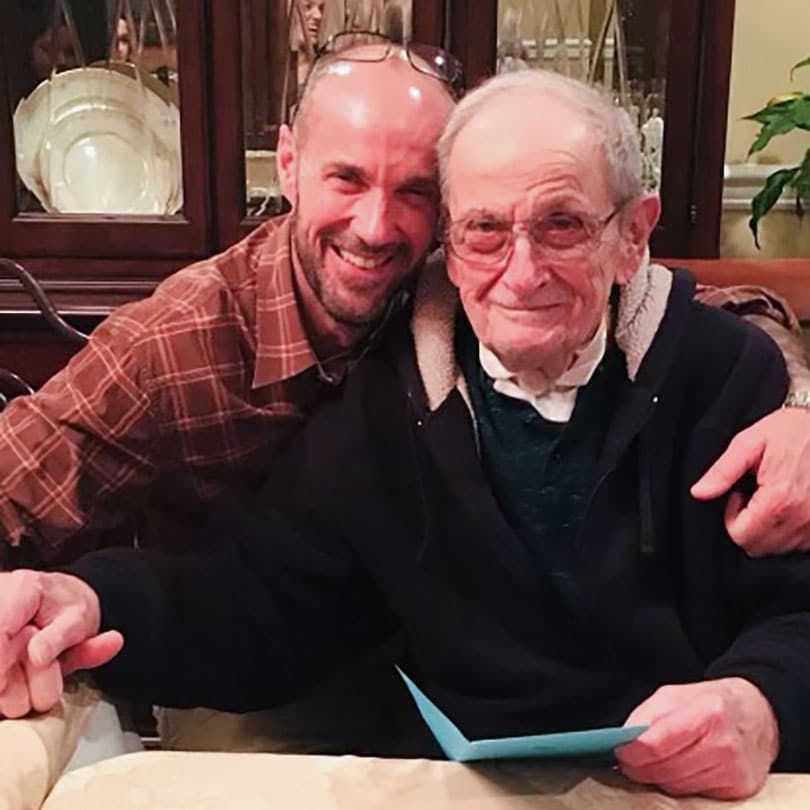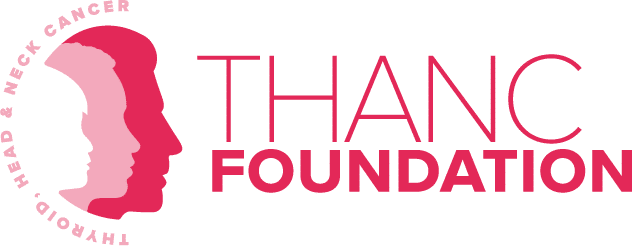
Several years ago, I took my father, Theodore to his ENT in New Jersey who diagnosed him with rare thyroid cancer. Because of the potential for a more complicated and involved surgery, my dad was referred to a physician in NYC. The commute from Jersey wasn’t fun, and I put all my days off of work towards taking my dad to the doctor. We were born and raised to work so this was tough, but you do these things for the people you love.
We adored our new care team in NYC, and the doctor cared so deeply about us. We always felt like he was there when we needed him. After so many years of doing surgeries, you would think a surgeon’s passion might falter, but it was so obvious that his hadn’t. We were so grateful that my dad’s care was in such good hands.
My dad underwent a successful thyroidectomy, but the surgeon had to remove his larynx, or voice box, which left him unable to speak. Losing his voice was difficult and unexpected, but we fully trusted the care team to steer us in the right direction.
He seemed depressed every once in a while, but our humor and positive attitudes got us through.
We grew to love my dad’s speech therapist so dearly. At her recommendation, we first tried a speech prosthesis. But due to my dad’s dexterity problems with his hands, he wasn’t able to press the button and master the device. Instead we tried an electrolarynx. We had some complications with his clavicle, but a specialist came out to help get the device working.
I could tell my dad felt trapped and that nobody was listening. He seemed depressed every once in a while, but our humor and positive attitudes got us through. When my dad and I had our first conversation since the surgery through the electrolarynx, without gurgles or malfunctions, it brought tears to both our eyes. After so much struggle, this moment empowered both of us to persist.
It wasn’t a perfect fix, and it wasn’t always easy to understand him through the electrolarynx. On top of that, my mom started to lose her hearing. He began to get frustrated trying to communicate with her. He would mouth to me that my mom wasn’t listening to him. Seeing him lose his sense of existence and feel aggravated, vulnerable and frustrated when trying to make himself heard was incredibly difficult.
After spending so much time with my dad, I learned to understand him pretty well. I always told him that we were listening and that someone always will be—it just might take a little longer for us to fully comprehend. I constantly reminded him that he was still physically here and meant something to us.
My dad’s nose wasn’t functioning as it used to, and his stoma became both his nose and mouth for breathing, sneezing, etc. Learning to use only one source of breathing was most difficult, especially since we are creatures of habit. It took some time to adjust to a constant runny nose, and even when it wasn’t actually runny, oftentimes the sensation was still there. His sense of taste and smell were diminished, but eventually the brain eventually helps by associating what it’s supposed to taste like or smell like. How amazing that our bodies can adapt to such extreme changes!
My dad was initially self conscious about being seen in public, given his new electrolarynx and new method of speaking through a button. We had a lot of conversations about not being afraid to show people who you really are. I told him: if people judge you, that’s on them! You don’t have to hide or be embarrassed. Eventually, after coming to terms with his condition and attending support groups, he internalized and owned his new normal.
If my dad was like most thyroid cancer patients, he would have lived a somewhat normal life. He could have started exercising again and would’ve adjusted to a new normal. Unfortunately, after surviving thyroid cancer, my dad started falling, tripping and shuffling his feet. My dad had the misfortune of being diagnosed with Lewy body dementia. As his hospital stays elongated and he developed pneumonia, I watched him deteriorate in a heartbreaking way. However, my dad’s amazing attitude inspired all of us.
One of my favorite last memories with my dad was when I “broke him out” of hospice.
Over time, his swallowing became even more difficult than it already was. When he stopped eating and entered hospice care, we knew he didn’t have much longer. Administering morphine to someone you love was incredibly hard, but we would do it to help ease his pain in his final days in hospice. When he looked like he was in pain, I would coddle him like a baby and tell him “Dad, I’m here,” which visibly relieved some fear.
Finding ways to incorporate humor even in the hardest of times allowed us both to endure. He loved Wild Turkey Bourbon Whiskey, so sometimes I would put some on his lips when I wasn’t supposed to so he could taste it, and we would both laugh. One of my favorite last memories with my dad was when I “broke him out” of hospice.
I wanted to give my dad some fresh air, and I took him in his wheelchair to walk around. I remember the nurses chasing us saying, “okay come back now, you’re going too far!” But we just kept going, laughing and smiling. It was truly an amazing memory. I remember him shuffling his pants in his wheelchair and asking him “Dad, are you dusting the cobwebs off your legs?!” He looked at me, smiled, and proceeded to give me the finger. I’ll never forget that hysterical moment in his last days. His sense of humor was incredible and got us both through the hardest of times.
My dad would always apologize for being a burden, but he wasn’t. He lived 12 days in hospice, surpassing the six days they had predicted. My dad never quit on us, and we would never quit on him. I never gave up hope, and a little denial turned out to be helpful.
Despite my dad’s unfortunate second diagnosis, we were so grateful for our incredible thyroid cancer care team throughout this journey.
After a year of decline, my dad passed away. The first thing people ask is “how old was he?”, but it doesn’t matter. Old age doesn’t make it any easier. We can truly never have enough time with the people we love.
Despite my dad’s unfortunate second diagnosis, we were so grateful for our incredible thyroid cancer care team throughout this journey. Even when there were aspects of his care that I questioned, having 100% faith in the doctors and knowing that they would steer us in the right direction was essential. They really are experts and do amazing work. They made me feel that I wasn’t just a bystander to my father’s care, but truly part of the care team. There were ups and downs, doubts, and challenging times for sure. But my love for my dad and faith in the doctors got me through.
For any caretakers out there—don’t hold back from loving your loved ones and give them your all.
For anyone else struggling with losing their voice—I know it can feel like nobody is listening. But just know that you matter in this world, and the people who love you are always listening; It just might take them some time to learn new ways of doing so. Be patient, have hope, and be persistent.
For any caretakers out there—don’t hold back from loving your loved ones and give them your all. Love is an incredible tool and can get you through such hard times. Find the humor in any situation, and lean on your support system.
I wish I could somehow fully express to my surgeon and his team how much of a difference he and his team made in my, and my family’s lives. When you choose the right team of professionals and have the gift of love, so many things can be accomplished. While I wish we were still able to take care of my dad, all good things come to an end and thanks to our care team, we were able to celebrate 3 more years with my dad after his thyroid cancer.
I hope this post will serve as a small way to express my everlasting gratitude and appreciation to our incredible care team, and to inspire others to cherish the ones you love throughout whatever time you have with them. Ultimately, grappling with cancer diagnosis, undergoing surgery, and losing your voice pose numerous challenges. However, these are surmountable with loved ones by your side.

Will You Share Your Story?
September is Thyroid Cancer Awareness Month. As part of that theme, we post stories written by thyroid cancer survivors, caregivers and medical professionals for our 30 Stories in 30 Days™ campaign. The insights they share can help others along their journey.


